Semester across the Mediterranean: Spain to Cyprus
Host Country and City
Spain
Spain is consistently one of the most popular locations for study abroad and we can understand why. The light, the colors, the food, the architecture and the people are all painted in broad, vibrant strokes. Spain is a diverse country located in Mediterranean Europe and together with Portugal and Andorra, makes up the Iberian Peninsula.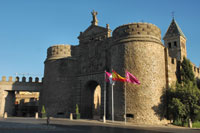
 The history of Spain extends back through the centuries with Phoenicians, Greeks, Celts, Romans, Visigoths and Moors all playing a role in shaping Spanish culture. Spain became a world power in the 16th century when it extended its presence to the Americas. After a tumultuous period which included a civil war, Spain became a constitutional monarchy in 1978 and a member of the European Union in 1986. Today, Spain is a developed country with one of the largest economies in Europe.With great beaches, fun nightlife, many cultural regions, beautiful national parks, traditional festivals and historic cities, Spain makes a great destination for any kind of trip. Spain has hundreds of interesting cities. Some of the major travel destinations include the capital Madrid, Barcelona, Seville, Cordoba, Toledo, Segovia, Salamanca, Valencia and Granada.
The history of Spain extends back through the centuries with Phoenicians, Greeks, Celts, Romans, Visigoths and Moors all playing a role in shaping Spanish culture. Spain became a world power in the 16th century when it extended its presence to the Americas. After a tumultuous period which included a civil war, Spain became a constitutional monarchy in 1978 and a member of the European Union in 1986. Today, Spain is a developed country with one of the largest economies in Europe.With great beaches, fun nightlife, many cultural regions, beautiful national parks, traditional festivals and historic cities, Spain makes a great destination for any kind of trip. Spain has hundreds of interesting cities. Some of the major travel destinations include the capital Madrid, Barcelona, Seville, Cordoba, Toledo, Segovia, Salamanca, Valencia and Granada.Barcelona
Barcelona, host to several of our Spain-based study abroad programs, is a lively and culturally-rich Mediterranean city in the southeastern Spanish province of Catalonia. This eclectic coastal metropolis is an excellent place for students to improve their Spanish language skills, immerse themselves in the dynamic Catalonian lifestyle, and explore Spain's majestic Costa Brava and its environs. As Spain's second largest city and one of the Mediterranean's most important ports, Barcelona is full of opportunities for each and every one of its visitors. Here, students can learn about Catalonia's success in the services, tourism and construction sectors, indulge in Antoni Gaudi's surrealist architecture, catch an exhibit at one of the city's many distinguished art museums, watch the latest South American or European soccer prodigy tear it up at Camp Nou stadium, take leisurely strolls along its pristine beaches, and enjoy an afternoon coffee by the famous pedestrian passage of Las Ramblas. It's no wonder the city receives thousands of study abroad participants on a yearly basis.Barcelona is also an excellent starting point for exploring the rest of Europe. Boasting Spain's second largest airport, visitors can fly out off Barcelona to virtually any location in Europe, usually for affordable rates in low-fare airlines. Likewise, the city is extensively interconnected by air, ground and maritime transportation services to most of Spain's major cities and tourist destinations.Overall, Barcelona, with its welcoming Mediterranean feel, unique architectural style and striking array of cultural activities, is a prime destination for students in search of a wondrous experience abroad.
Cyprus
New! Watch a video overview of Nicosia, the host city for our all our Cyprus-based programs!
Since the dawn of recorded history, Cyprus has been one of the most sought-after areas of the region, mainly because of its strategic geographical location, at the crossroads of 3 continents (Europe, Asia and Africa). Ancient Greeks, Egyptians and Romans, along with Crusaders, Byzantines, Franks and Ottomans, have left a remarkable legacy for the modern visitor to explore.
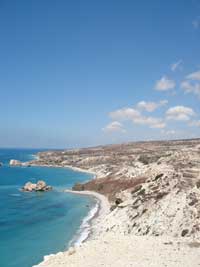
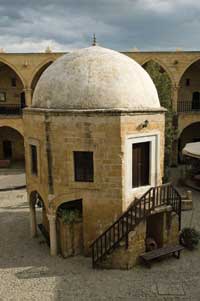
Today, Cyprus is still an important trading hub and is quickly becoming a center for education and research in the region, with continuous incoming investment from international organizations and educational institutions.
Diversity on Many LevelsCyprus is truly an "island for all seasons". With over 300 days of sunlight annually, four distinct seasons and a mild climate, it is an ideal year-round destination. Every year, over 2.5 million tourists choose Cyprus as their vacation destination and many Europeans invest in second homes on the beautiful beaches and mountains of Cyprus.
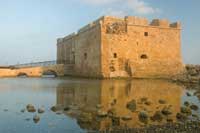
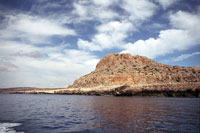
Cyprus offers a remarkably diverse natural and cultural environment for such a small country. In the same month, you can visit snow-tipped pine forests in the Troodos mountains, drive through fields of olive trees and relax by the clear blue Mediterranean sea.
The cultural heritage of Cyprus mirrors its physical diversity. Ancient Greek temples, Roman amphitheaters, pre-historic settlements, Crusader castles, Venetian fortifications and Byzantine churches can all be found within a day's drive of each other. Today, Cyprus retains a multi-cultural heritage combining Greek, Turkish and British influences in a modern European society.
Nicosia
Students are based in Nicosia, the vibrant and modern capital of the Republic of Cyprus, located in the center of the island. Nicosia is a safe and accessible city of about 270,000 that combines a medieval "Old City" filled with rich Greek, Venetian and Ottoman monuments with a thriving, cosmopolitan "New City", attuned to the latest European business and fashion trends.
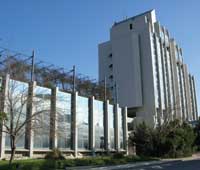
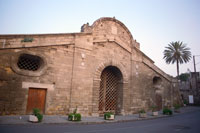
Old Nicosia is enclosed within Venetian fortifications, built in the 16th century by the then rulers of the island. Even though Nicosia has grown way beyond its medieval boundaries, these walls still contain the cultural center of the city and the quaint streets are filled with museums, cafés, music bars, restaurants, art galleries and cobbled roads.
New Nicosia that developed outside the walls is the political, economic and educational center of Cyprus and presents many opportunities for site visits and program activities. It also has lively shopping, restaurant and nightlife areas for students to explore.
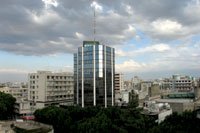
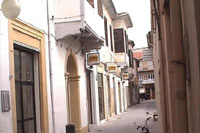
The standard of living in Nicosia is on par with other prosperous cities in southern European countries and English is widely spoken. Nicosia has a large university community of over ten thousand local and international students and most students blend in and make friends easily.
Finally, the central location of Nicosia is a great base to explore all the fantastic beach and mountain towns of Cyprus, which is something we do on all of our
study abroad programs.